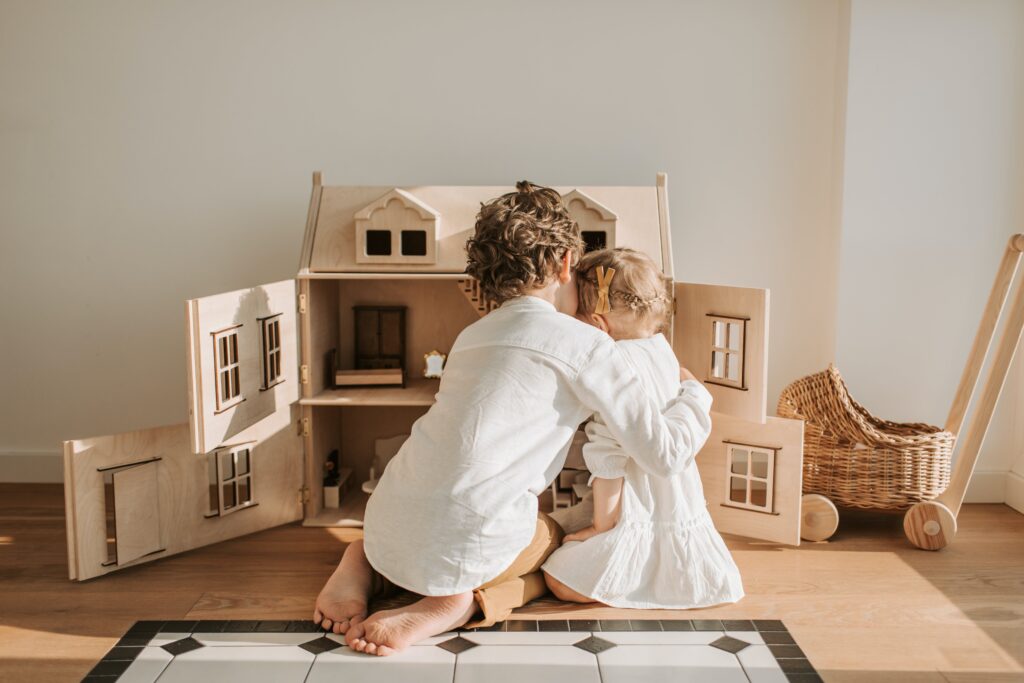
Family Law Solicitor, Fiona Moffat, discusses Child Protection Conferences, what they are, who should attend and why?....
For many parents the thought of their child being placed on a child protection plan (formerly known as the ‘at risk register’) is extremely daunting and worrying. This blog will answer some of the common questions surrounding the process.
Why are Social Services holding a Child Protection Conference?
A child protection conference will be held due to concerns regarding a child’s welfare. A concern can be raised by anyone; some of the most common are referrals from nursery/school, health visitors, family members, neighbours or even anonymous referrals. As soon as social services receive a referral with concerns about a child’s welfare, they have a duty to investigate (S47 investigation).
If after having investigated, social services form the view that there is a risk that a child is suffering from significant harm, they must convene a Child Protection Conference.
Who attends a Child Protection Conference?
The conference will be chaired by an independent reviewing officer (‘the Chair’). Although they work for the Local Authority, their remit is entirely different from a social worker, and they should be impartial.
Parents will be invited to attend the conference. If appropriate, parents may be allowed someone to attend with them to provide support. This will usually be someone who is closely involved in the child’s life, perhaps a family member or close friend. It is important that the parent can trust this person to keep everything they hear confidential.
The child may also be invited to attend the Conference, subject to their age and understanding.
The child’s social worker will attend the conference as well as any other key people involved in the child’s life. Usually, a representative from the school or nursery that the child attends is invited along with a school nurse or health visitor.
If parents have any other professionals involved with them such as a drugs worker/DV worker/housing officer, they will also be invited to attend. If there is any concerning police information to share, a representative from the police may also attend.
Solicitors can attend conferences with parents or for the child; however, they are not entitled to speak or have any active participation. They may be allowed to speak at the discretion of the Chair.
It will be the final decision of the Independent Reviewing Officer as to who can attend the Conference.
What will happen at a Child Protection Conference?
Prior to the Conference, the social worker will prepare a written report. This should be shared with the parents in advance of the Conference.
At the Conference, the social worker will outline the worries that they have for the child as well as the things that are working well. The other professionals who have attended the Conference will then be asked for their input, usually including a written report.
After this information has been shared, the social worker and other professionals will be asked if they consider that the child is at continuing risk of significant harm. If this threshold is crossed the Local Authority will place the child on a Child Protection Plan. If there is a split decision amongst the professionals, then the majority decision will rule.
The professionals must decide the category of harm for the child. This can be sexual, physical or emotional harm or neglect.
What is included in a Child Protection Plan?
If a decision is made for a child to be put on a Child Protection Plan at the end of the conference, the plan will be drawn up.
A Child Protection Plan should:
- assess the likelihood of the child suffering harm and look at ways that the child can be protected.
- decide upon short and long term aims to reduce the likelihood of harm to the child and to protect the child's welfare.
- clarify people's responsibilities and actions to be taken; and
- outline ways of monitoring and evaluating progress.
The plan will encompass all of the things needed to ensure that the child is safe and to improve life for the child. Usually, a Child Protection Plan includes provision for the parents to ensure that the child attends school and all of their health appointments. If there are any specific concerns about the parents such as drug use, the plan will provide that the parents must get professional support for this.
Can I stop my child being on a Child Protection Plan?
Unfortunately, as a parent, there is nothing that you can do to prevent your child being placed on a Child Protection Plan.
Whilst you can make your views known at conference, you cannot stop it from happening if the majority of the professionals are of the view that it is necessary.
If a parent fails to engage with the Child Protection Plan and address the concerns, then it is likely that social services take further action. This could be by starting the Public Law Outline (pre-proceedings) process, or even by starting Court proceedings if there is an imminent risk of harm.
How long will my child be on a plan?
After the first conference, there will be a review conference at 3 months. Any conferences thereafter are held at 6-month intervals.
When social services are satisfied that the concerns have been addressed and the child is no longer at risk of harm, the child protection plan will end. It will automatically end when the child is 18.
Next Steps...
If you need advice on this or any family matter, please contact one of our team on freephone 0800 011 6666 or visit the family law section of our website.




